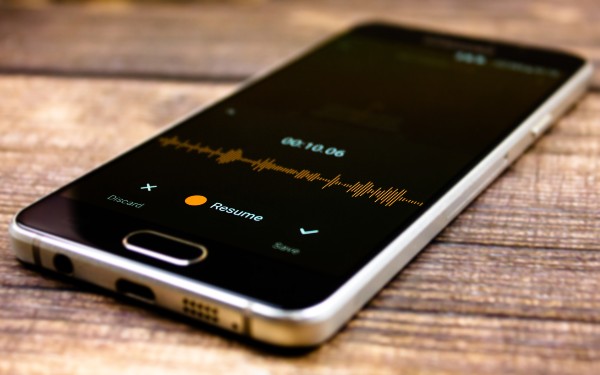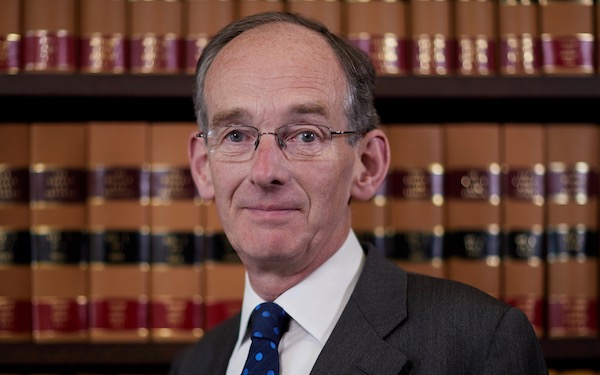
Parents are increasingly making covert recordings of social workers in child protection cases due to a lack of trust or for use in subsequent court proceedings, family justice leaders have warned.
However, despite the ease with which such recordings can now be made through smartphones, and their increasing frequency, guidance for practitioners on how to respond was “extremely sparse” and has not kept pace with need, said the Family Justice Council (FJC).
The FJC made the comments in new guidance designed to both address the gap in advice for practitioners on covert recording but also encourage professional bodies to produce their own guidelines to help staff navigate the issue.
The FJC guidance highlighted the potential harms from the use of covert recording, particularly to children, and provided advice on how the family courts should assess its evidential value. It also advised that organisations consider the use of overt recordings in situations where there was a breakdown of trust between professionals and parents.
Increasing use of covert recording
The FJC defined covert recordings as any made without the express knowledge and permission of the people being recorded, whether by video or audio.
It said the family courts were increasingly being asked to consider recordings made by parents of professionals, other family members or children, as evidence in proceedings. The recording of professionals – whether covert or overt – was “a growing phenomenon”, driven by reasons including:
- A lack of trust in social workers’ records of meetings, for example, due to the parent not having received notes from meetings, or having disagreed with the contents of notes received, in the past.
- Gathering evidence for later use in family proceedings.
- Sharing information as part of a campaign, for example, on social media, though the FJC stressed that this may not have been the original intention of the recording.
Legality of recordings
While the Regulation of Investigatory Powers Act 2000 requires public bodies to only use covert recordings if legal, necessary and proportionate, no such framework exists for private individuals, in relation to whom whom there was “confusion” over the lawfulness of the practice, said the FJC.
The guidance said that the processing of personal data – information that relates to an identifiable living individual – for purely domestic purposes, such as taking family photographs, was generally exempt from the UK General Data Protection Regulation (GDPR).
However, this exemption did not apply when the data was then processed in a professional setting, such as in meetings with social workers or for the purpose of family court proceedings, or published.
In such cases, this would require a lawful justification under GDPR, said the FJC, or the person risked committing the offence of unlawfully obtaining personal data, under the Data Protection Act 2018.
Whilst there was no specific criminal offence of using covert recording devices, it could, in rare circumstances, amount to the offences of harassment, stalking or coercive and controlling behaviour, for example, when one parent was making a recording of another, said the FJC. It could also be found to be a form of intimidation that could result in the person making the recording being the subject of an injunction.
Admissibility in family court proceedings
In any case where a covert recording was presented as evidence in family proceedings, the court would need to carry out “focused case management” to determine whether it should be admitted in evidence.
As it would almost always constitute hearsay evidence – a statement not given in oral testimony – this would involve considering whether it was covered by the Children (Admissibility of Evidence) Order 1993, which permits the use of such evidence, or was otherwise allowable.
The court would also need to assess the authenticity and accuracy of the recording, which may require expert evidence if these were disputed, as well as its relevance and value in the case, said the guidance.
However, the FJC warned that the costs, in time and money, of litigation to determine the admissibility of covert recordings were significant, and said “that the inherent intrusion of covert recordings on parents, children, and professionals, can also have harmful and sometimes unintended consequences”.
‘Profound consequences for the welfare of child’
The FJC raised particular concerns about the impact of recordings of children.

Photo: Binkontan/Adobe Stock
“Parents who covertly record their children usually do so in the belief that the recording will provide some significant evidence relating to a disputed issue in their case,” it said. “The number of cases where this has proved to be the case is few, if any.
“Against any perceived potential value of the secret recording are the profound consequences for the welfare of any child subjected by a parent to such a degree of invasion of privacy and breach of trust.”
The fact of such a recording would raise questions about the capability of the parent making it “to understand and promote their child’s emotional needs and protect them from harm”, it added.
Views of young people
Consultation with the Family Justice Young People’s Board, a group of young people with experience of the family courts that supports the FJC, “underscored the negative and harmful impact of covert recordings on young people”, said the guidance.
The FJYPB highlighted the likely feelings of betrayal children would feel, the potential for manipulation and coercion and the risk that the recording would create an “illusion of veracity” where, for example, the child’s words were designed to placate the parent or were part of a staged scenario.
They were more positive about the value of overt recordings, with the child’s consent, though stressed there would need to be clear guidance to ensure these were held by professionals and not parents, to avoid selective editing and sharing on social media.
Potential value of overt recordings
The FJC guidance said that, where there was a breakdown of trust between professionals and parents, this could potentially be overcome by the overt recording of meetings.
It included, as an appendix, previous guidance developed by guardians’ professional body Nagalro, highlighting the value of practitioners acceding to requests from families to record meetings, thereby avoiding the risks of covert recording.
The Nagalro guidance said this may encourage someone who was suspicious of the local authority to engage and would help rebut allegations that anything improper was said by the practitioner. It also stressed that the practitioner should not say anything in a meeting that they would not be happy for the court or parties to proceedings to hear.
Cafcass has also advised that practitioners should always be transparent in their work and that there was no legal reason why a parent or carer should not record an interview with a family court adviser, subject to any direction from the court.
Call to develop recording policies
The FJC advised agencies to “develop clear policies that provide for the circumstances in which such recordings can be made by consent, and how the data arising will be maintained, stored and accessed in compliance with the applicable statutory framework”. This should also cover the process for destroying recordings.
However, it stressed that recording meetings should not become the default and should never replace the need for practitioners to exercise professional judgment and make written records of meetings, highlighting the importance of non-verbal communication.
FJC chair, and president of the family division of the High Court, Sir Andrew McFarlane said: “Whilst some covert recordings have been found to have evidential value, the secret nature of covert recordings can intrude on the privacy of parents, children and professionals, causing harm and often leading to concerns about the accuracy of the recording.

Sir Andrew McFarlane, president of the family division of the High Court
“It is hoped that this guidance will encourage professional bodies and organisations in the family justice system to consider developing their own guidance on the use of covert and overt recordings.”
Cafcass said it welcomed the FJC’s guidance, with a spokesperson adding: “It aligns with Cafcass’ own internal guidance for its family court advisers when working with children and families where covert recordings are made.”







 Bournemouth, Christchurch and Poole
Bournemouth, Christchurch and Poole  Hampshire County Council
Hampshire County Council  Oxfordshire County Council
Oxfordshire County Council  South Gloucestershire Council
South Gloucestershire Council  Wokingham Borough Council
Wokingham Borough Council  Embedding learning in social work teams through a multi-agency approach
Embedding learning in social work teams through a multi-agency approach  The family safeguarding approach: 5 years on
The family safeguarding approach: 5 years on  Harnessing social work values to shape your career pathway
Harnessing social work values to shape your career pathway  Webinar: building a practice framework with the influence of practitioner voice
Webinar: building a practice framework with the influence of practitioner voice  Workforce Insights – showcasing a selection of the sector’s top recruiters
Workforce Insights – showcasing a selection of the sector’s top recruiters  Free CPD on Parkinson’s for health and social care staff
Free CPD on Parkinson’s for health and social care staff 

 Facebook
Facebook X
X LinkedIn
LinkedIn Instagram
Instagram
I recorded everything in relation to social workers. Would not have the evidence to prove they lied about my family. Maybe if they followed their regulations and protocols people would not loose faith in the system. I’d advise anyone to do this.
Best thing to do is always treat the parent with courtesy and respect, be honest, and challenge politely. If you always talk to parents like you are being secretly recorded, there won’t be a problem.
Recording social workers should be the norm. We did out of pure frustration when no one was listening. We proved she was lying and a two year battle was brought to a swift end.
We could have lost our children otherwise.
We were lucky.